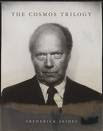Critical Mass regularly features an exemplary review by a National Book Critics Circle member critic. Here, from the Brooklyn Rail, Jackson Taylor reviews Frederick Seidel’s Poems 1959–2009.
Frederick Seidel is a master builder. Using metaphor and concrete imagery he erects majestic properties of opulent proportion. But what he builds he also destroys, making him a closed system: an architect who contracts with both the muse and the devil. So many of his poetic cathedrals are built around the same destructive narrative paradigm, it becomes possible to blueprint their stained glasses by connecting only two colors: pink and green—or flesh and money.
In Seidel’s constructs the halls have majestic calculation, the kind of properties that the vainly rich without pedigree often depend on to project their facade of exclusivity, palaces that rely on rose colored marble and verdant gardens of the greenest money. But in Seidel’s world human refinement is an illusion where vulgarities hide and wait to arrest and corrupt. His poems are palaces built upon dungeons of black, colonies ripe with the labor of slaves.
The book is like being a guest for a long season on an elegant estate, where your host is often a boastful, name-dropping connoisseur; dressed in the hand-cut cloth of tailor-made clothes with labels often deliberately on display, he descends, or ascends, to pour you a glass from a rare, vintaged bottle; only don’t be surprised to find his fine wine has been laced with Spanish fly. For he is himself also the licentious servant, the one who smears his own august household with his ribald affairs; and Spanish fly is the least of it, for his silver servant’s tray also bears mud, coal, coke, and excrement. The drawing room is soon corrupted, and since he has been reported to say he does not care what other people think of his poems perhaps he aims to shock himself with his own self-debasement.
It is possible to accurately diagram the electric jolt where Seidel juxtaposes his details of financial privilege with the vice of naked flesh, because it happens so often. The pattern becomes a thematic obsession illustrating that in his superlative world, sex, like money, is an unavoidable and lewd pursuit, concealed or disguised, until it explodes through his satin breeches, ripe, spoiling, and often rotten.
If you long to leave the suffocating confines of Seidel’s real estate and bodily function, you can always go on a trip with him, where acquired cultural details can show money’s appropriation. You can even hitch a ride on one of Seidel’s fast-motored racing machines where his lines spin and sparkle like the spoked wheels of some exclusive chariot. But the excessive road of his journey rarely leads to the palace of wisdom—and again don’t be surprised if to take a ride on one of Seidel’s engines is more often than not to land in the ditch of decadence and degradation.
Assembled together in one extensive volume, the poems coagulate into something sinister and baroque. The book also spins a crooked wheel of Russian roulette—a muddy game where the house always wins—and yet if the pull of reading him weren’t so damned magnetic, one wouldn’t be tempted to play or make a bet at all. And therein lies the great force of Frederick Seidel. While a large proportion of the poems are structurally or thematically repetitious, with often flagrant or hostile juxtapositions, the poems also contain individual images and lines of astonishing beauty. And after one grows immune or indifferent to the sophomoric thunderbolts, a strange phenomenon falls over the collection in that the skillful poems that involve more human or civilized impulses stop yielding to the overshadowing of the more feral works—suddenly the places where the sacred stops being devoured by the pagan begin to emerge and stand out.
But a lot of shock must be endured before the whole scope of his talent is seen. As one fellow poet recently noted to me over lunch—it is often difficult to like reading Frederick Seidel. There are always misgivings, and yet it is a large body of work and reading him in collection it also never stops being a surprise to discover how often one says to oneself, “Now, here’s a poem of his I actually like.”


